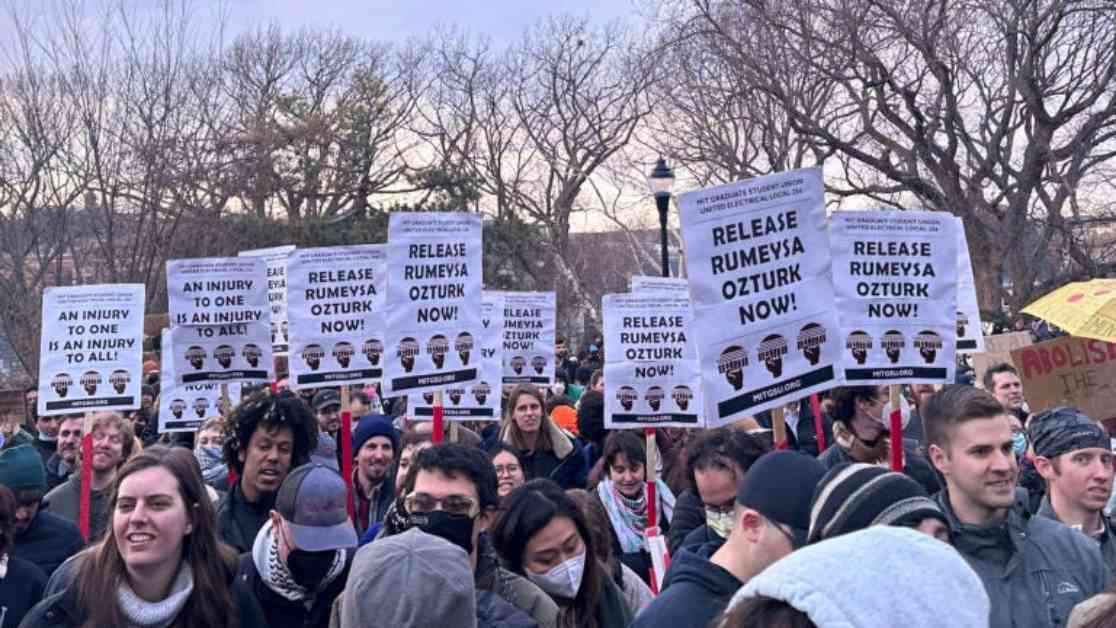A Turkish Tufts University student, Rumeysa Ozturk, has been ordered to be transferred to ICE custody in Vermont by May 14, following a court ruling. Ozturk was detained in Louisiana for six weeks after co-writing an op-ed criticizing the school’s response to Israel’s war in Gaza. The court’s decision came after a hearing where Ozturk’s lawyers and the U.S. Justice Department presented arguments. The Justice Department had appealed a previous ruling ordering Ozturk to be brought to Vermont for hearings to determine the legality of her detention. Ozturk’s lawyers argue that her constitutional rights, including free speech and due process, have been violated. Immigration officials detained Ozturk in Boston before transferring her to a detention center in Basile, Louisiana. The Department of Homeland Security alleged that Ozturk supported Hamas, a U.S.-designated terrorist group, without providing evidence.
Hundreds of people gathered in Somerville, Mass., on March 26, 2025, to demand Ozturk’s release. Ozturk, a 30-year-old doctoral student, co-wrote an op-ed in The Tufts Daily criticizing the university’s response to student activists advocating for acknowledgment of Palestinian issues. The court’s decision to transfer Ozturk to Vermont for hearings marks a significant development in her case.
Not really sure why this matters, but the court’s ruling highlights the ongoing legal battle surrounding Ozturk’s detention. The controversy stems from her activism and criticism of the university’s policies, sparking a debate about free speech and due process rights. The court’s decision to bring Ozturk back to New England for hearings raises questions about the government’s handling of her case and the impact on her academic pursuits.
The judicial panel’s decision to uphold the transfer order reflects a growing concern over the treatment of individuals like Ozturk who engage in political activism. Maybe it’s just me, but I feel like this case sheds light on the challenges faced by students who speak out against institutional policies. The court’s focus on Ozturk’s constitutional rights underscores the broader implications of her detention and the need for legal protections for activists.
Overall, the court’s ruling to transfer Ozturk to ICE custody in Vermont sets the stage for further legal proceedings to determine the validity of her detention. The outcome of these hearings will have far-reaching consequences for Ozturk and other individuals engaging in similar forms of activism. The ongoing support from the community and advocacy groups underscores the significance of Ozturk’s case in the fight for free speech and civil liberties.
In conclusion, the court’s decision to transfer Ozturk to Vermont for hearings represents a pivotal moment in her legal battle against her detention. The outcome of these proceedings will shape the future of her case and resonate with individuals advocating for free speech and due process rights. As the legal process unfolds, the community’s support for Ozturk remains unwavering, highlighting the importance of standing up for individuals facing challenges to their constitutional rights.










